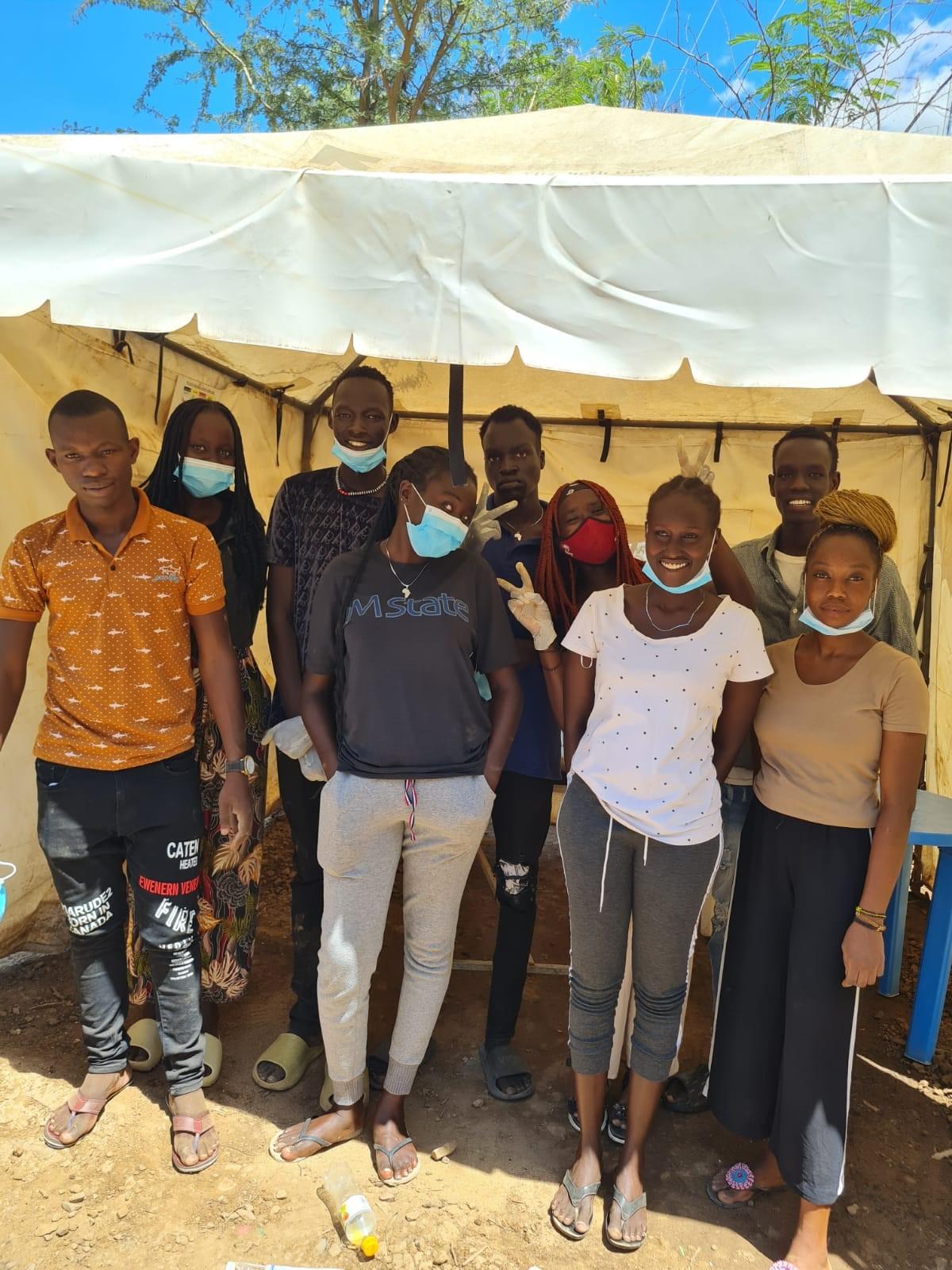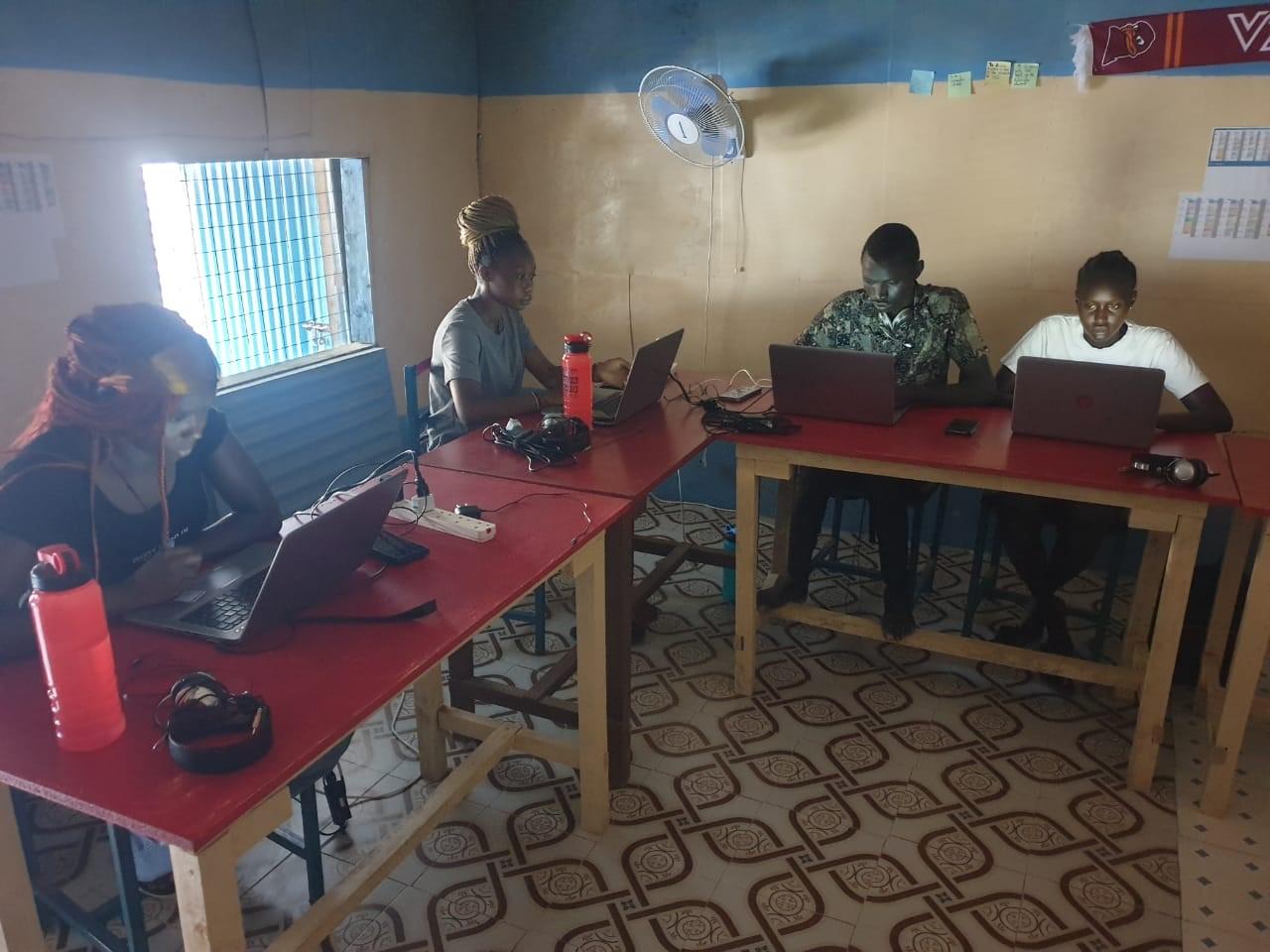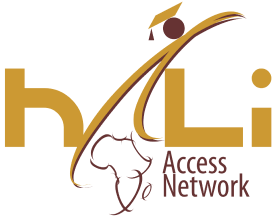Meet one of the newest HALI members, Elimisha Kakuma.
Elimisha Kakuma, which means “Educate Kakuma” in Swahili, is the first college-preparatory gap year program designed specifically for refugees from Kakuma Refugee Camp in Northwest Kenya seeking higher education. In Kakuma, students who finish secondary school are faced with few to no opportunities. Even if students have the grades that would qualify them for university in Kenya, as refugees, they do not qualify for financial aid, nor do they have the right to work in Kenya, to earn enough money to study. The few scholarship opportunities that are available are not sufficient to the number of students who finish secondary school each year in Kenya. Three former refugees from Kakuma Refugee Camp, Mary Maker, Diing Manyang, and Dudi Miabok, experienced this same dead end. That’s why, a few years into their respective degrees at St. Olaf University, George Washington University, and Harvard University, they, along with their former teacher, Deirdre Hand, decided to found Elimisha Kakuma in 2021.
Elimisha students go through a 15-month holistic academic program that prepares them for university-level content through academic classes, the college application process, mentorship, and community service. In its first two years, Elimisha students have received full scholarships to Dartmouth College, Macalester College, U.C. Berkeley, Elmhurst University, Trinity College, University of Tulsa, Simon Fraser University, University of Calgary, Western University, and the Czech University of Life Sciences.
As a refugee-led organization, Elimisha’s mission is that as more refugees receive higher education, they will give back and support their communities, as its co-founders have done.

Students from cohort 3 participate in community service projects, including this one where they volunteered at a clinic in Kakuma 1 by dismantling an old clinic tent, cleaning the compound, and offering emotional support to patients.
Below is an inspiring reflection from one of their founders, Deirdre Hand, in which she shares a story that captures the essence of the work they do and its incredible impact on students.
I have always said to students in class, that a really great writer is able to get the audience to understand and feel the most in the shortest number of words. In the Elimisha Kakuma program, over the summer we do a dozen writing prompts and assignments designed to work on intentionality and precision in writing. They are meant to collect scattered thoughts and ideas, tease them apart and fit them together once again, so that each informs the other in a rich portrait of the world. These exercises come to a head in the writing of the personal statement at the end of the summer.
However, when working with refugees whose lives have been affected by complex and intricate global phenomena spanning decades and multiple countries, what becomes the most challenging is figuring out how to tell these stories in a way that empowers the individual, while truthfully and simply explaining the external pieces along the way. To do this, I have found, requires students to work through every aspect of the story they want to tell, writing about each piece, before sifting through multiple different frameworks to weave these pieces together again. In order to do this, I often recommend students take a step out of themselves, to look at trends, images, objects, colors or smells that they feel have had a sense of continuity throughout their lives.
I remember the first time this exercise really worked. I had a student write about a coat, given by his grandmother before he fled his home country, that he carried throughout his life. He wrote about how its meaning changed as he grew up, how it protected him in his journey to school and then fleeing South Sudan. He wrote about what that would mean for his grandmother and his family, to turn that coat, that image of protection, into graduation regalia.
The way personal statements are written, they are designed to bind together past experiences, as a way of informing future dreams. For many students, it is the first time they have written about their experiences and been told that those experiences can shape a future, and that, most importantly, their stories and experiences are important.
That student who wrote about the meaning of his coat will be attending Macalester College in the fall. When I recall the long journey he has taken to get to a university classroom, I am reminded of the importance of working in educational access, because I see the power and strength of the investment in a more peaceful and more equitable future.
*The student referenced above has given permission to share his writing. If you’d like to read it, please read it on our partner, Virginia Tech’s Center for Refugee, Migrant, and Displacement Studies’ blog. *

Students from cohort 3 working on their classes in the Elimisha Kakuma center in Kakuma
To learn more about and connect with Elimisha Kakuma, please visit:
Website: www.elimishakakuma.org
Instagram: elimisha_kakuma
Facebook: Elimisha Kakuma
